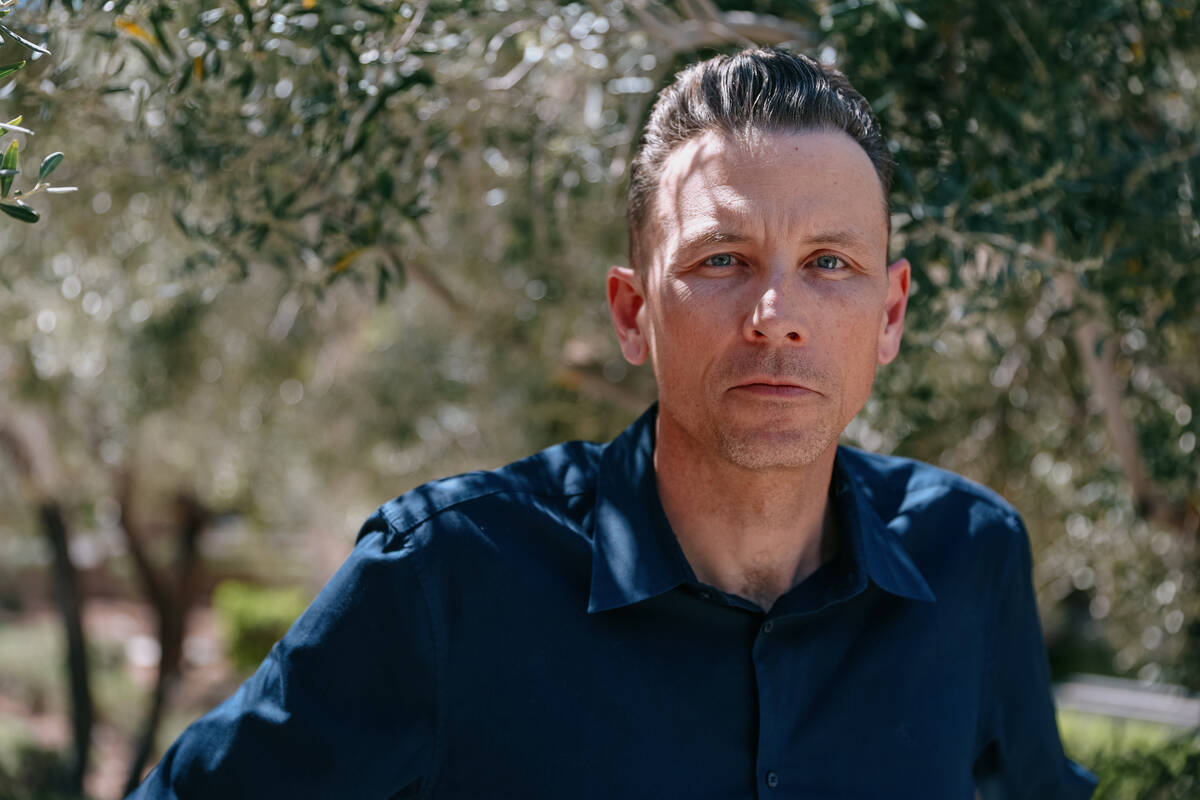Nevada DOGE group seeks to find waste, fraud in state spending
The federal Department of Government Efficiency has made headlines for its efforts to find waste in the government and cut federal spending to reduce the federal budget deficit.
Now, a new organization hopes to mirror that effort in Nevada.
DOGE NEVADA, a third-party watchdog group made up of tech professionals and economists, is scouring Nevada’s public government portals for wasteful spending and abuse, according to its president, Brandon Davis.
“Nevadans (and) Americans want to see their taxpayer dollars used efficiently and effectively, to go back to services that benefit them the most,” Davis said.
A March 31, 2025, Harvard CAPS/Harris poll found 68 percent of voters support the goal of cutting $1 trillion in government expenditures and believe the current level of U.S. federal government debt is unsustainable.
Finding waste
Davis, a Republican who ran for State Assembly in 2024, said he has long been interested in fiscal responsibility, following Ron Paul and Thomas Massie’s limited government and fiscally responsible positions. He said he has long felt Nevada lacked audits, inspections and oversight on spending, and the federal DOGE’s creation inspired him to take action.
The state organization is not connected to the national DOGE under the Trump administration, though Davis reached out to the national department to ask to be listed as an affiliate, he said. The group is nonpartisan and is not targeting a specific person or department, Davis said.
State Controller Andy Matthews created a government transparency portal and the open finance portal that provides information on state spending, including the state’s checkbook, budget, payroll and pension payments. Washoe County and the city of Las Vegas also has portals of publicly available data, Davis said.
Using those portals, DOGE NEVADA is writing code to comb through millions of field sets and looking for suspect expenditures, Davis said. Suspect expenditures could include transactions going to individuals, or funds going to other countries, he said. If any data stands out, the group requests further information through public records requests.
When the group finds spending it deems to be wasteful, the group will release the information to the public to educate them, Davis said.
“Through empowering citizens, through educating voters, through using digital technology to create vast brand awareness about this stuff, we can have more effective change and not be tied or bought and sold by the government,” Davis said.
The group is also asking for tips from whistleblowers through an anonymous whistleblower reporting tool. Davis said since the group went public this week, it has received a lot of spam.
Nevada State Treasurer Zach Conine called the state group and the national group’s efforts a “Trojan horse toward the removal of essential services from Nevadans.”
“I think it is disheartening and, frankly, a little bit humorous that we have had this recent growth in what I can only assume are well-meaning individuals who, instead of spending their time learning about government or trying to understand how government works, are instead cosplaying as some sort of government official on the hunt for waste, fraud and abuse,” Conine said.
Conine, who was first elected to the position in 2018, said the state of Nevada has always run lean because Nevadans made the choice to have a small government. That government is run pretty efficiently, he said.
Government is complex, and officials spend a lot of time trying to make sure they get it right, he said. There are also systems in place, such as the attorney general’s office and the Division of Internal Audits, that conduct audits and hold bad actors accountable, Conine said.
Previous audit efforts
Davis said current audit systems in place are inefficient and past efforts have been unsuccessful.
Former Republican Gov. Jim Gibbons established the Spending and Government Efficiency (SAGE) Commission in 2008 to study the executive branch. The commission made 44 recommendations that were projected to save taxpayers around $2 billion over five years. Many of those recommendations were ignored, Davis said.
In 2009, the commission had 23 recommendations, and half of them became law or were adopted while the rest were rejected or ignored, according to a 2009 report from the Review-Journal. One recommendation that was approved reduced the size of the night shift at the Department of Motor Vehicles while maintaining a five-day turnaround on title requests.
A similar effort from former Gov. Brian Sandoval focused on Nevada’s K-12 education, with a report issued in 2017. Those recommendations were also ignored, Davis claimed.
Glenn Christenson, chair of the SAGE Commission under Sandoval, confirmed that for the most part, the commission’s recommendations were largely ignored. A couple of the recommendations were implemented, but they were nominal, Christenson said.
Previous wasteful spending
Davis pointed to past spending in Nevada that he deems as wasteful, such as nonprofit groups tied to lawmakers receiving funds last legislative session.
In 2023, the Nevada Department of Transportation allocated a $9.1 million grant to Uprise Fiber, a company tasked with expanding high-speed internet along Interstate 80 to rural Lovelock. He said in the two years since the project began, no infrastructure was delivered.
He pointed to the $12 million government-funded pickleball complex under development in Las Vegas as another example. U.S. Sen. Rand Paul singled out the project as wasteful. The 30-court complex at Wayne Bunker Park is funded through a grant from the Bureau of Land Management.
“Absolutely I think that instead of pickleball courts or instead of creating an interpretive walk at a state park, maybe we should look at affordable housing,” Davis said. “We should look at paying teachers more, improving our 40th in the nation education rankings.”
Las Vegas Deputy City Manager Steve Ford, who oversees parks, recreation and cultural affairs, said money came through the Southern Nevada Public Lands Management Act and was money generated by the sale of public lands in Southern Nevada.
“Providing public recreation is a necessity in an urban area like Las Vegas,” Ford said. “I don’t think it’s a waste at all, because it is keeping money generated in Southern Nevada in Southern Nevada for the public, for public use.”
Davis said anywhere the group can find waste in government spending is overall a win.
“I think our country is falling off a cliff fiscally,” he said. “I think that we see through the federal debt and where we’re at right now, that the trajectory we are on is unsustainable, and I think we know that. So there has to be massive change.”
Conine said he spent his week fighting for almost $3 million the federal government owes Nevada for bills from March, and he’s making sure that the state is solvent.
“What is the purpose of an entity throwing rocks when we are under a landslide?” Conine said.
Contact Jessica Hill at jehill@reviewjournal.com. Follow @jess_hillyeah on X.


















